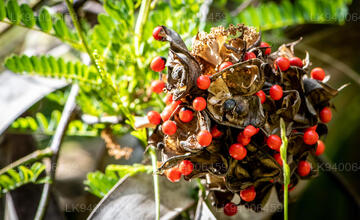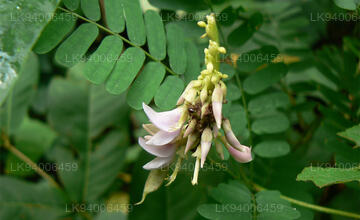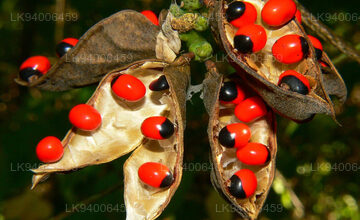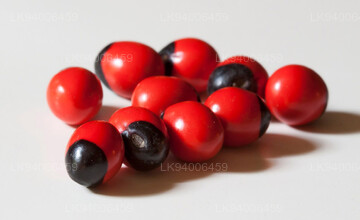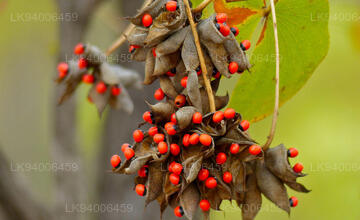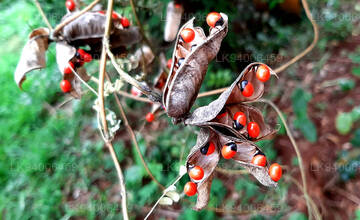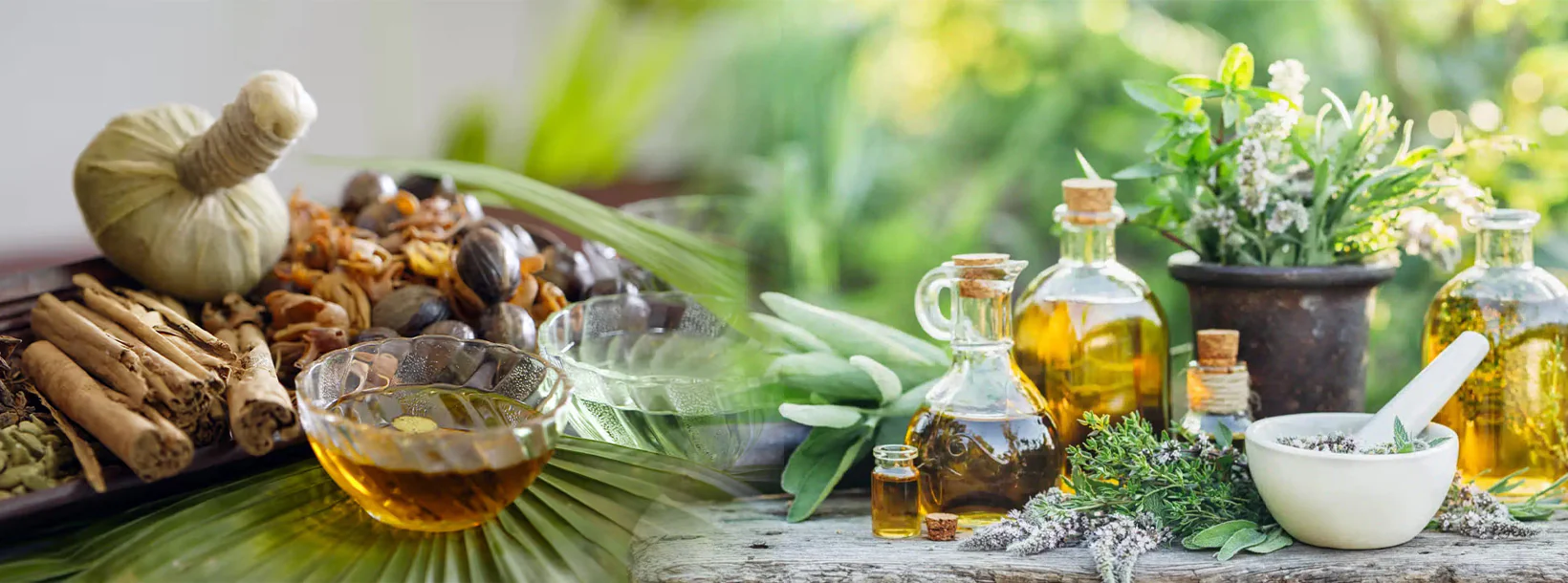
Ayurvedic Medicinal Plants
Sri Lanka's Ayurvedic tradition features a rich variety of medicinal plants used for centuries. Sri Lanka has a rich tradition of Ayurvedic medicine, drawing on its indigenous knowledge and a variety of medicinal plants. Here are some notable Ayurvedic medicinal plants found in Sri Lanka:
Abrus precatorius
Abrus precatorius, commonly known as jequirity bean or rosary pea, is a herbaceous flowering plant in the bean family Fabaceae. It is a slender, perennial climber with long, pinnate-leafleted leaves that twines around trees, shrubs, and hedges.
The plant is best known for its seeds, which are used as beads and in percussion instruments, and which are toxic because of the presence of abrin. Ingestion of a single seed, well chewed, can be fatal to both adults and children. The plant is native to Asia and Australia. It has a tendency to become weedy and invasive where it has been introduced.
Abrus precatorius is a severely invasive plant in warm temperate to tropical regions, so much so that it has become effectively pantropical in distribution. It had been widely introduced by humans, and the brightly coloured and hard-shelled seeds had been spread by birds.
Abrus precatorius, called "Olinda" has been used in traditional medicine for centuries. The white variety is used to prepare oil that is claimed to be an aphrodisiac. A tea is made from the leaves and used for fevers, coughs and colds. Seeds are poisonous and therefore are only consumed after heat treatment. The old sinhaleese knew about the toxic effects in plants. This is done by boiling the seeds in milk and then drying them. Like with castor oil, the protein toxin is denatured when subjected to high temperatures rendering it innocuous.
The plant is also used in Ayurveda and is said to promote hair growth. It is sometimes used as an ingredient in hair products.
Abrus precatorius is part of the catalog of ayurvedic medicinal plants of Sri Lanka.
-

Ankenda
Acronychia pedunculata -

Beli
Aegle marmelos -

Bakmi
Nauclea orientalis -

Bangwel-geta
Coscinium fenestratum -

Bukinda /Walkinda
Tinospora malabarica -

Bu- kobbe
Allophylus cobbe -

Dodan –kaha
Memecylon capitellatum -

Diyamitta
Cissampelos pareira -

Embul dodan
Citrus aurantium -

Gas nidikumba
Biophytun reinward -

Hintambala
Carmona microphylla -

Goraka
Garcinia cambogia -

Karapincha
Murraya koenigii -

Keppetiya
Croton laccifer -

Kohomba
Azadirachta indica -

Kotikan-bevila
Sida alba -

Kudumiris (Forest paper)
Toddlia asiatica -

Kurundu
Cinnamomum zeylanicum -

Mahakaramba
Carissa carandas -

Muna mal
Mimusops elengi -

Nelli
Phyltanthus emblica -

Puwak
Areca catechu -

Rath mal
Ixora coccinea -

Eepatta / Ruk - anguna
Alangium salviifolium -

Siyambala
Tamarindus indica -

Walangasal / Wal-embilla
Embelia ribes -

Wal Karapincha
Micromelum ceylanicum -

Welangiriya
Paramignya monophylla
Ayurvedic and Herbal
-
Baume ayurvédique aux herbes Siddhalepa
Prix habituel Du €0,95 EURPrix habituelPrix unitaire / par -
Feuilles de corossol déshydratées Lakpura (Guanabana, Graviola, Guyabano)
Prix habituel Du €2,95 EURPrix habituelPrix unitaire / par -
Link Swastha Thriphala (30 comprimés)
Prix habituel Du €1,95 EURPrix habituelPrix unitaire / par -
Huile miracle Sethsuwa Pranajeewa
Prix habituel Du €3,95 EURPrix habituelPrix unitaire / par

